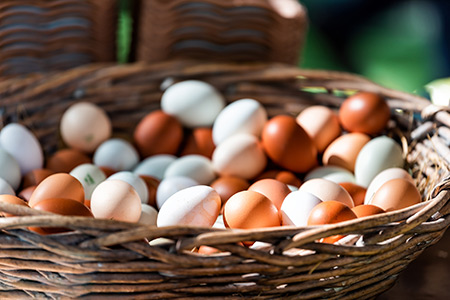In the 20th century it was common for UK workers across the public and private sectors to stay with one employer for years, even decades. Final salary pensions were common i.e. schemes whereby the employer paid a guaranteed, lifetime income to its former workers once they retired, with the income determined by factors such as salary and years of service. In 2021, however, this picture is very different. Not only do people switch jobs far more often, possibly over 20 times across a working lifetime, but they also live longer.
Instead, most UK employers now offer workers a defined contribution pension, where contributions are deducted from salary and members join under the auto-enrolment system. Here, you build up a workplace pension pot with your employer, with you typically contributing 5% of your salary in 2021-22, and your employer 3%. If you leave your job, the money you have saved remains in the pension pot. As such, this makes it possible to build up multiple pots with several employers over 10, 20 or 30+ years. When you finally start thinking about retiring, therefore, this can make the process much more difficult, as there may be multiple pots to track down, with each scheme containing its own rules, quirks and restrictions. Here, it may make a lot of sense to consolidate your diverse pension pots into a single pot, making everything simpler and easier to manage.
What is pension consolidation?
Simply put, consolidating your pensions involves bringing multiple pension pots together. You do not have to do this with all of your old pension schemes. Indeed, there may be cases where you might want to keep specific ones separate.
Not only does consolidation come with many financial planning considerations, it also involves a range of complex rules which need to be considered carefully with an experienced professional, including:
- Final salary (or defined benefit) pensions. If you are considering moving a final salary pension into a single pot (together with your other schemes), then you are legally required to seek financial advice if the value of your benefits is worth over £30,000.
- Scheme transfer acceptance. It is possible that the scheme housing your new pension pot may accept transfers from all of your old schemes, but you will need to check carefully, before requesting a transfer.
- Exit fees. Many old workplace pension schemes impose a charge for exiting/transferring. Some of these can be absorbed without too much discomfort, yet others can be quite punitive. Consider checking each scheme’s rules carefully with your financial planner.
- Taking income. If you are already taking an income from one of your pension schemes, then your new scheme may not let you transfer this pot into it.
Why consolidate your pensions?
It is not always in your interests to consolidate your pension savings. Those who wish to consolidate do not have to do this with all of their schemes. However, there can be a range of great benefits to bringing multiple pensions together under one scheme:
- Cut costs. Some workplace pension schemes, particularly old ones, involve high fees which can eat into your investment returns and could, therefore, affect your quality of life in later retirement. Moving to a new, cheaper scheme could result in big savings.
- Improve performance. The funds offered to your old workplace pension(s) may not be built on the best of foundations. Transferring can, therefore, present a chance to access funds with stronger fundamentals and better prospects for good performance.
- Greater choice. For many people, their workplace pension may only offer a limited range of funds. Opening a new scheme and transferring old ones into it could open up new investment opportunities, such as ESG (Ethical, Social, Governance) funds.
- Easier management. Trying to manage one pension pot is far easier than trying to keep track of 10 or even more!
Should I consolidate my pensions?
This is a personal question, and the answer will vary depending on factors such as your financial goals, investment horizon, attitude to risk and current financial circumstances. It is important to work through these issues with your financial planner to ensure that you have the best range of up to date information in front of you, on which to base your decisions about transferring an old pension pot to a new scheme.
Bear in mind the government is aiming to introduce a pensions dashboard, which will allow people to keep track of multiple pension savings, as it recognises the problems this can cause.
Before considering consolidating pensions, you should ask yourself:
- How happy am I with my current pension schemes?
- Do I find it hard to manage my retirement savings and, if so, do I want to make it easier?
- Would I prefer to keep most/all of my savings in one place?
Invitation
If you would like to discuss your financial plan and investment strategy, then we would love to hear from you. Get in touch with your Financial Planner here at Vesta Wealth in Cumbria, Teesside and across the North of England.
Reach us via:
t: 01228 210 137
This content is for information purposes only. It should not be taken as financial or investment advice. To receive personalised, regulated financial advice regarding your affairs please consult your Financial Planner here at Vesta Wealth in Cumbria, Teesside and across the North of England.

